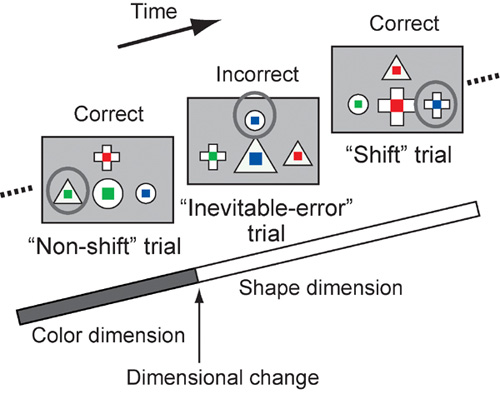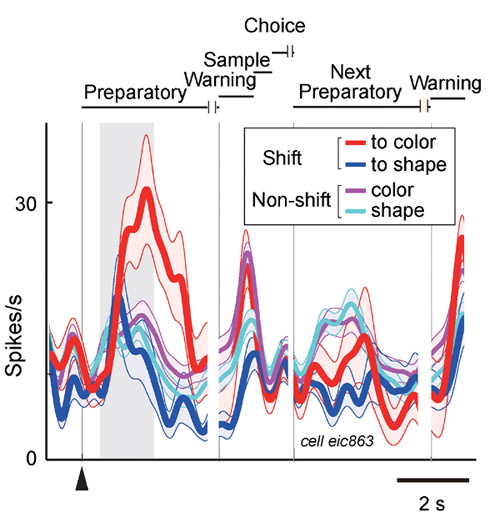Cognitive set reconfiguration signaled by macaque posterior parietal neurons
When faced with problems, we can flexibly change our ways of thinking or our point of view. Our cognitive flexibility arises from this ability of shifting cognitive sets. To elucidate how this dynamic process is implemented in the primate brain, single-unit activity was recorded from the posterior parietal cortex (PPC) of two monkeys performing analogs of the Wisconsin Card Sorting Test, which is most commonly used to test cognitive flexibility in humans. Kamigaki et al. in Miyashita’s lab successfully trained the monkeys to promptly perform set shifting, mostly within a single trial, and found shift-related activity: PPC neurons were transiently activated when the monkeys shifted from one cognitive set to another, but not when they shifted in the opposite direction. This shift-related activity emerged about 4 s before the actual behavioral responses, and it well predicted whether the cognitive set would be successfully shifted. These results provide novel insights into single-unit level mechanisms of cognitive flexibility.
Program member
Yasushi Miyashita (Department of Functional Biology, Graduate School of Medicine)

Figure 1. Wisconsin card sorting test modified for monkeys.

Figure 2. A representative posterior parietal neuron exhibiting shift-related activity.
